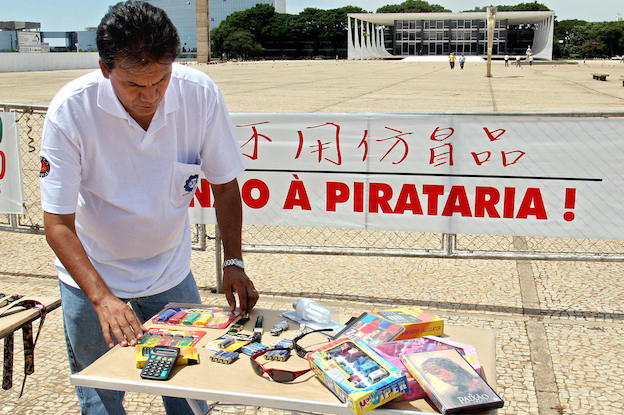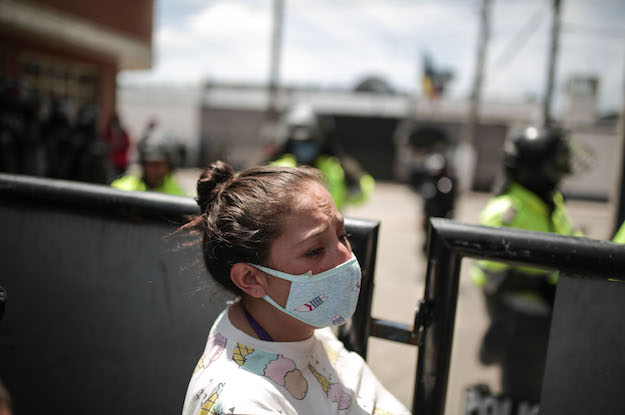This article is adapted from AQ’s latest issue on piracy in Latin America
The logic of a fair and just market is inverted when the basic requirement of protection for intellectual property is missing. To accept that someone will produce and sell products outside the law means to support those that aim at easy profits without any regard or respect for society. The sale of pirated, illegal products only generates corruption and violence.
This is supported by testimony from police and customs officials. Pirated and illegal origin products finance organized crime without much public backlash: It generates billions in profits but isn’t perceived as a threat. At the National Forum Against Piracy we project that in Brazil alone the illegal market represented at least $37 billion in 2017, counting losses from 15 productive sectors plus an estimate for tax evasion. The OECD estimates contraband and piracy represent 2.5 percent of all commercial transactions in the world, some $461 billion in 2013 numbers.
Consumers and many governments do not see that relationship and often choose to focus on the image of the street vendor, with a romantic idea of the poor street seller, without considering what is behind this illicit market. Pirated goods are produced and transported around the globe and this network is obviously not for amateurs.
In Brazil we try to educate consumers that each purchase helps move this criminal engine. Combating illicit trade must happen towards both demand and supply. We’ve sent proposals to the government to strengthen coordinated and integrated action to combat the illicit market, starting from border control and roadways all the way to points of sales in cities.
Organized crime that is thriving with revenue from piracy can be thwarted by a combined action of society and officials. It is necessary to identify the large operators of this well-articulated system, closing their warehouses and points of sale while identifying and disabling their means to launder money.
Respect for the law and ethics are foundations of human interaction and institutions, and provide the framework needed to attract investments, generate jobs and income. Respect for intellectual property rights, trademarks and the origins of products and ideas provide great stimulus for innovation and development in countries that assure laws are enforced and that all authors, creators and trademark holders will be respected and protected.
This benefits consumers as well, as it guarantees access to products with high standards of quality and taxes paid by legal business help support public coffers.
The problem goes beyond borders. These criminal organizations are transnational with operations in multiple countries. The Latin American Alliance Against Contraband — ALAC — was created in 2016 to unify efforts between regional governments and the private sector. At the ALAC we hope to stimulate the exchange of information, push for integrated action at the borders and the upgrading of intelligence systems towards combating the actions of these criminal organizations.
The transnational character of organized crime is a threat to public security in all nations. At the ALAC meeting in August 2018, 15 countries were present, represented by both governments and the private sector, and many proposals were presented, such as articulating integrated offices at the borders. We find necessary the adoption of measures that bring nations and their police forces and customs officials together in this fight.
Piracy and all illicit commerce hinder investment, innovation and development while strengthening organized crime groups that finance themselves with a tax-free billion-dollar commerce. Companies that pay taxes and obey laws are severely impacted by this unfair competition and should therefore be defended. All of society will benefit.
—
Vismona is president of the Brazilian Forum Against Piracy and CEO of ETCO






